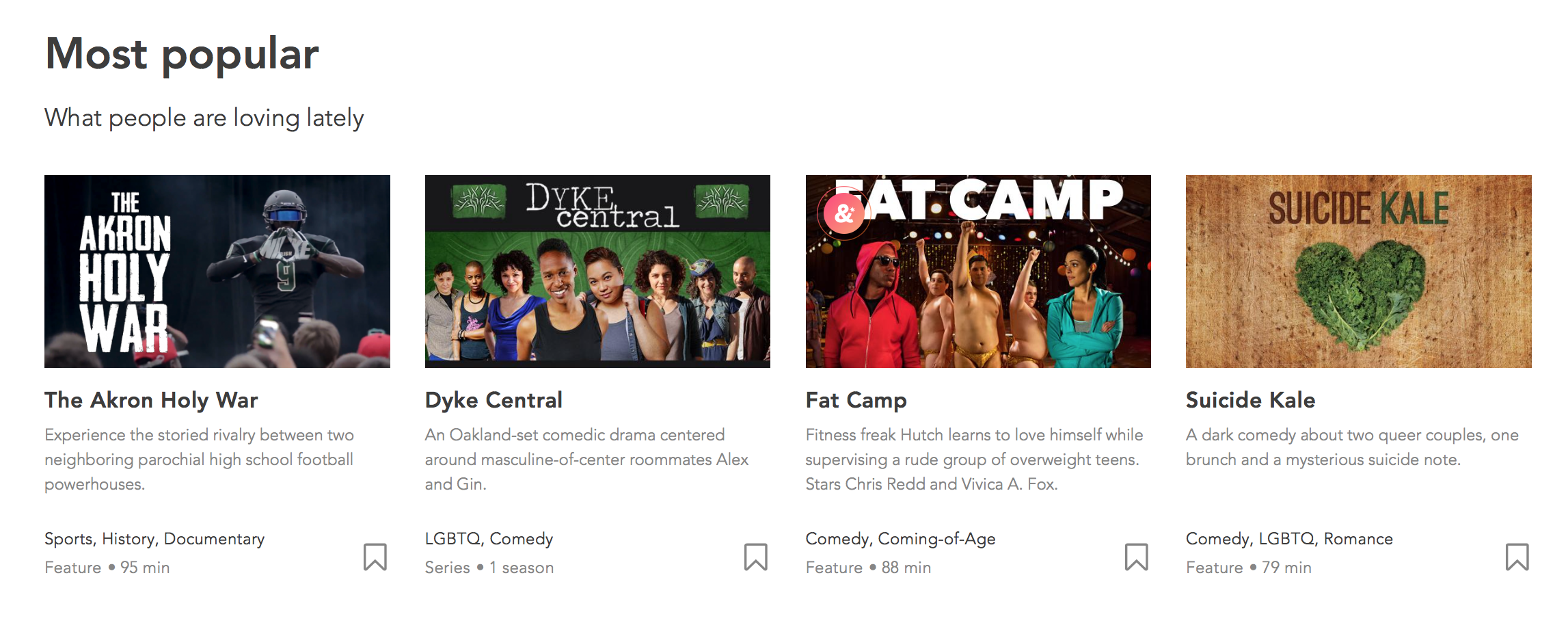Find a guide to the Oak Cliff Film Festival, which runs through Sunday, here.
Before #TimesUp and #OscarsSoWhite became household hashtags, Seed&Spark co-founder Emily Best was acutely aware of Hollywood’s parity problem. She was already working to develop a multi-platform approach to get funding and visibility for those trying to tell stories from new perspectives. The problem was, few others understood film had a problem with diversity. Not yet anyway.
But then, something interesting happened. Those underrepresented groups started speaking up and asking for a change. Over the next two years, diversity demands took center stage at the Oscars and in turn, were piped into millions of living rooms. “I used to have to quote dozens of stats at the top of investment conversations that I don’t have to quote anymore,” explains Best. “So yeah, that part has made my job a lot easier and made it a lot clearer why we exist.”
Best is in town this weekend for Oak Cliff Film Festival leading a workshop called “Crowdfunding to Build Independence” as part of her company’s educational outreach program. OCFF is one of about 150 festivals they’ll connect with this year alone. She also pitched in on programming, giving a second set of eyes on select screeners and adding in a few picks of her own. One of those, a feature doc called Half the Picture, made the cut and runs Saturday at The Kessler.
Half the Picture is a movie that’s both a complete joy and a total bummer to watch. Amy Adrion brings about a dozen important female filmmakers together — from Ava Duvernay to Karyn Kusama to Miranda July and Penelope Spheeris — to detail the challenges, sexism or flat-out assault that they had to navigate in order to do a solid day’s work. Such a murderer’s row of talent is hardly ever in one film — much less with the depths of humor and strength in this one. Best will do a Q and A after the film, along with one of its featured directors, Penelope Spheeris, whose 1987 punk western comedy Dudes screens on Sunday at Texas Theatre.
Seed&Spark began as a custom-designed crowdfunding tool— think Kickstarter, for new voices in film. “More than 910 movies and shows have raised more than 12.3 million dollars on the platform, and we have about 100 projects live right now,” notes Best. But since the launch of its subscription streaming service in June of last year, it now nourishes every stage of the filmmaking process.
With Seed&Spark, Best uses a combination of educational outreach, fundraising and now distribution to support its filmmakers at every creative pain point. Workshops, like Saturday morning’s, teach people how to establish financial independence for their creative pursuit. The crowdfunding platform helps them raise that dough and identify their audience early. And that crowdfunding platform works hard — it currently has an 85 percent success rate for projects. Then, when finished films need to reach viewers, there’s the new Seed&Spark subscription streaming service, which lets users search through playlists like “Female AF” and unconventional categories like Death, Compassion or Belonging.

“It’s the only streaming service we know of that has gender parity among directors, which is something we’re really proud of,” says Best. “We also proved that even with not so many subscribers, you can pay filmmakers a fair rate for their film, and share the [marketing] data and it doesn’t wreck your business model.”
Best believes that the marketing data is the missing piece for many filmmakers. Especially those in the non-studio world who need to stretch every dollar. Before launching the streaming service, Seed&Spark distributed titles to other VOD platforms. But Best found that those companies and websites were using all of that back-end data (how long a viewer looked at a title, where they lived, what they watched) for their own algorithms, but had no interest sharing it with the filmmakers. And knowing who’s really watching a specific film can help that filmmaker position their work, secure funding for future projects or arrange a screening wherever their fans are watching.
Best believes that by putting that data in the hands of individuals, Seed&Spark is leading the charge to change outdated industry marketing practices and the thinking that drives them.
“If it’s a film about women, it’s a film for women. If it’s a film about men, those are just movies. They’re not chick flicks,” explains Best. “But this is true about LGBT films, about black films — just across the board.”
This low visibility into viewership data means most films are simply marketed to people who look like the movie’s cast. And according to Best, that reflects untapped revenue potential.
“What we’ve learned is that there is a massive white audience watching Insecure for example,” says Best. “If you knew that about some of the smaller films, the way you would go about marketing them would be less tied to identity and much more tied to subject matter. And that’s where we really start to level up from the diversity problem.”
And while “diversity” is often tied to race, gender and sexual orientation, getting a broader range of voices in film also means adding another component: geography. If everything getting pumped down the pipeline reflects a point of view from a bustling coastal city, we miss the thoughts and ideas running through half of the country’s time zones.
“Nobody ever needs to see another “Struggling Actor in Los Angeles” movie as long as we live,” says Best. “However, a “Struggling Actor in Chattanooga” movie?” she asks with a laugh, “I would watch.”
Join the free Crowdfunding to Build Independence workshop at Oak Cliff Cultural Center this Saturday at 1 p.m. Then join Best again for Half the Picture at 3 p.m. at The Kessler.





